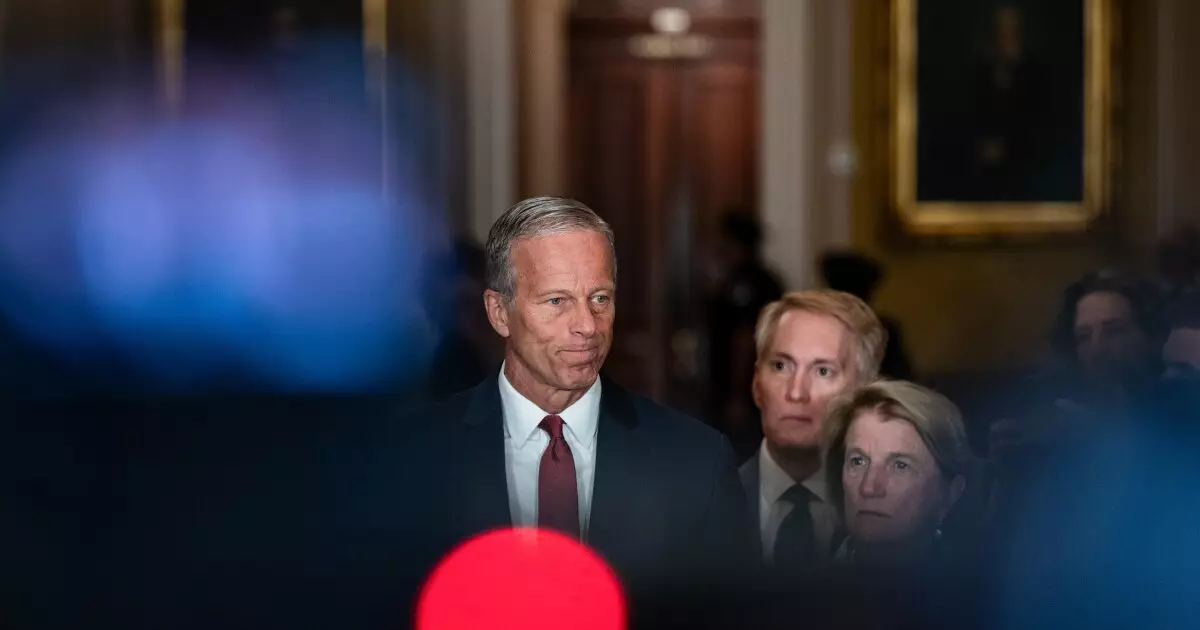In what could be characterized as a desperate attempt to placate disheartened GOP senators, a proposed $15 billion relief fund for rural hospitals has emerged as part of a contentious tax and spending bill. While the intentions may appear noble, this initiative lacks the strategic foresight necessary to address the underlying issues plaguing the rural healthcare sector. The repeated emphasis on a temporary relief fund simply highlights the continuous cycle of putting out fires instead of implementing long-term solutions.
The Problem: Systemic Failures in Rural Healthcare
Recent statistics paint a grim picture of the rural healthcare landscape: nearly half of all rural hospitals operated at a financial loss last year. This begs the question: is inserting $15 billion into a failing system the answer, or merely a shiny band-aid that distracts from the deeper issues? The proposed cuts to Medicaid funding represent a reckless disregard for the health of rural communities, exacerbating a crisis that exists largely because of systemic inequities in healthcare access and funding.
By focusing solely on immediate relief, politicians are ignoring a crucial truth: without comprehensive reforms to address why rural hospitals are struggling, this fund merely serves to extend their lifelines temporarily. Cutting Medicaid to balance budgets leads to a damaging ripple effect, ultimately sidelining the very populations that rely on these facilities.
Lack of Strategic Oversight
One of the most glaring oversights in this initiative is the lack of an effective allocation strategy for the funds. The proposed distribution method, which divides funds equally among states while considering factors like rural population and the financial stability of hospitals serving low-income patients, is riddled with complexities that may lead to further disparities. The formula’s pending adjustments by the Centers for Medicare & Medicaid Services (CMS) only add an additional layer of uncertainty, leaving many hospitals wondering if they will even be able to access these funds.
Moreover, the decision to disregard the Senate parliamentarian’s rules regarding reconciliation, which ensure that only budget-related provisions can pass with a simple majority, raises eyebrows. Such a decision will likely exacerbate partisan tensions instead of leading to constructive bipartisan dialogue.
The Politicization of Healthcare Funding
With Republican senators advocating for this relief fund just as loudly as they are voting to cut Medicaid, it seems there is a fundamental disconnect between fiscal responsibility and moral obligation. In a traditional sense, one could argue that fiscal conservatism dictates limiting government spending, but at what cost? Balancing budgets on the backs of vulnerable populations is a dangerous game, especially when healthcare is involved.
The push for relief in places like Kentucky, Oklahoma, and North Carolina indicates not just a concern for constituents in these regions, but also an awareness that failure to act could have devastating consequences on electoral bases. When healthcare becomes a bargaining chip in political maneuvering, the unquestionable moral obligation to deliver adequate care to rural populations is compromised.
Investment in Structural Change Over Temporary Solutions
Instead of merely silencing dissent within their ranks with short-term funding, Republicans should prioritize structural reforms in rural healthcare. This entails not only assessing the distribution of funds but fundamentally rethinking the Medicaid system itself and addressing why certain states consistently experience financial shortfalls more than others.
By investing in preventive care, telemedicine, and innovative healthcare delivery models tailored to rural environments, policymakers could create a more resilient healthcare infrastructure. This proactive stance would not only mitigate the risk of future financial disasters but also enhance the quality of care.
While the proposed $15 billion relief fund is presented as a necessary step for the future of rural hospitals, its potential effectiveness is incredibly questionable. This initiative represents a significant moment of reflection and decision-making for Senate Republicans. Instead of resorting to stopgap measures, true leaders should focus their energies on comprehensive reforms that target the real issues driving healthcare crises. In the end, prioritizing nuanced solutions over temporary fixes will serve not just rural patients but the integrity of the healthcare system as a whole.

